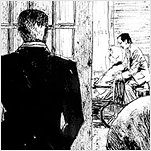Following are excerpts from remarks today by
President Clinton and Prime Minister Benjamin Netanyahu of Israel, as
transcribed by the Federal Document Clearing House, a private
transcription agency. Mr. Clinton spoke at the White House after
meeting with Mr. Netanyahu, Chairman Yasir Arafat of the Palestinian
Authority and King Hussein of Jordan; Mr. Netanyahu spoke at the
Israeli Embassy. Mr. Arafat issued no statement.
PRESIDENT CLINTON
I'd like to begin by thanking King Hussein, Prime Minister Netanyahu and Chairman Arafat for coming here to Washington at this critical and very difficult moment for the Middle East peace process. Their journey reflects a true commitment to peace and an understanding that there is no alternative to the path of peace their people have traveled so far along in the last few years.
I invited them here with three urgent goals in mind.
First, to seek to curb the terrible violence and death that we saw last week.
Second, to get the Israelis and the Palestinians talking again at the highest levels.
And third, to help both parties return to the hard work of building peace through negotiations.
Today, I can report progress on these goals. First, the Israelis and Palestinians clearly are talking again at the highest levels. I believe that calm, constructive, face-to-face meetings Prime Minister Netanyahu and Chairman Arafat have had here will help to build trust between them, and promote progress on the issues that still divide them.
The Prime Minister and the chairman agree that they are partners in peace, understand that it is vital to take each other -- take into account each other's needs and concerns and realize the importance of removing the frictions between them.
Second, the Prime Minister and Chairman Arafat have recommitted themselves to a nonviolent future, to renouncing violence in the resolution of their disputes.
Third, they are ready to renew and intensify negotiations on implementing the interim agreement, with Hebron as the first priority.
They are committed to engaging immediately in talks. And to achieving tangible progress quickly. To assist them in this effort, I am sending Dennis Ross, our special Middle East coordinator, to the region now. The very first meeting will take place on Sunday morning at Erez. They want to resolve the problem of Israeli redeployment from Hebron, and they want to achieve this as soon as possible.
I might point out that these talks will be occurring continuously, and we will -- these will be the first continuous peace talks that have been held since the Prime Minister assumed office with the Palestinians.
Finally, the leaders also understand they need to make arrangements between their security forces so that cooperation is more reliable and the situation on the ground is stabilized.
They are prepared to do what is needed to achieve that, as well.
All of us have put the meetings we have had over the last few days into the proper perspective. The peace process did not start today and it will not be finished tomorrow.
For three years now, the Israelis and the Palestinians have been moving forward along the path to a lasting peace. Every step is hard. It requires both sides to make difficult decisions and to keep their eyes fixed on the prize of lasting peace.
But the progress they have made has proved to the world that progress is possible and peace is possible.
Both
sides know there is no turning back. Just as there can be no peace
without security, there can be no true security without peace.
MR. NETANYAHU
I think this was the first step to break down certain barriers that were there of lack of confidence in one another. I cannot say that we now know each other fully well and so on, but we did spend several hours together discussing a lot of the issues openly and in a very cordial environment.
And I think this will facilitate trust. I think we accomplished a significant improvement in that area.
I say that when you have trust, all sorts of things that are problematic can be solved. And when you don't have trust, everything becomes a problem.
We've accomplished quite a few things. And I think the most important one is to cement the principle that the path to peace is through negotiations and not through violence. That is that the principle that we must cease any forms of violence and that if anyone has a grievance, he brings it to the negotiating table and nowhere else. I think that is a central principle by which we can guard peace.
I want to assure you about our commitment to peace. This is our compass. It's our map. It's our hope for our children and for the children of the Palestinians as well. We know that such a peace is inextricably bound with security and that peace can progress as long as security holds.
- 1
- 2













